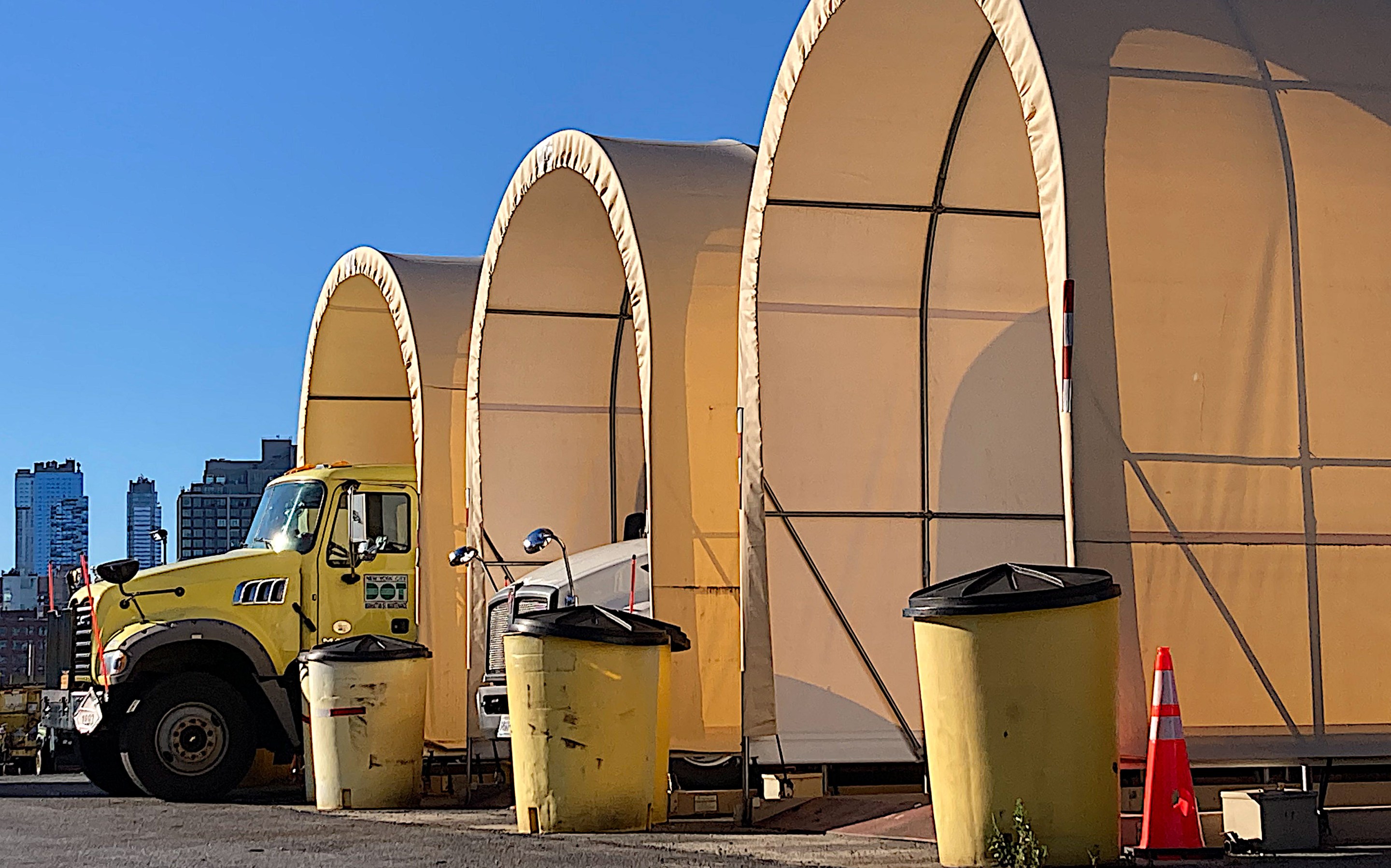On an otherwise quiet night early last spring, a loud boom echoed through Prospect Park. A New York City Department of Transportation asphalt truck had exploded, shooting a large hunk of metal 200 feet into the air and nearly knocking a city worker off his feet.
It seemed like a freak occurrence. The tanker was carrying a petroleum-and-asphalt mix known as "cutback" that's commonly used in road repaving projects, typically without incident.
But another city DOT cutback tanker exploded days later. And a third exploded a few weeks after that.
These previously unreported blasts are detailed in records obtained by Streetsblog and were described further by city employees. One official said the episodes raise questions about the city's decision to use a paving material that other cities have phased out because of its safety and environmental hazards.
"We got lucky that it stopped at three" explosions, said the official, who spoke on the condition of anonymity. "This is a serious situation. Somebody could get hurt."
Hussain Bahia, a professor emeritus at the University of Wisconsin-Madison and an expert in asphalt, said it was unusual for a municipality to have so many mishaps with the material in just one month.
"Three instances in a very short time is not normal in this business," he said. "I'm very, very surprised."
Bahia encouraged the city to phase out cutback.
"In the U.S. generally we stopped using cutbacks a long time ago because of this danger," he said. "Literally it's like jet fuel. It's not good for the environment. It's not safe."
DOT Spokesman Scott Gastel said the department has used cutback for years with few issues — the recent explosions notwithstanding. He said DOT trains employees how to safely handle the material, which he described as standard in the paving industry.
Cutback is one type of "tack coat" used in road repaving projects to help new asphalt stick to the ground. In warm weather, tack coats usually consist of asphalt emulsified in water. But emulsions don't work well when the temperature drops, as the water can freeze or become slow to dry. So some paving crews switch to cutback, replacing the water with a petroleum solvent such as kerosene. Cutback wont freeze, but it comes with other risks.
Tyshawn Fields knows all about those risks.

An eight-year veteran of the DOT, Fields was operating the truck that exploded in Prospect Park on March 24. The episode began when he heated up the cutback in a tank mounted on a DOT truck to prepare it for spraying on the ground. Without warning, the tank burst open, shooting the lid high into the air and knocking Fields backward.
"It kind of blasted me away," he said in an interview. "I lost consciousness. I didn't know what was going on."
The lid landed on nearby Parkside Avenue, records show. "It could've killed somebody," Fields said. "That thing is so heavy."
The blast damaged Fields's hearing and left him with post-traumatic stress disorder, he said.
It's unclear to Fields what went wrong — he said he had followed standard procedures for working with the material, as he had done before without incident. After the explosion, DOT blamed Fields, he said, claiming he had warmed the tanker when its level was too low, effectively heating up dangerous vapors instead of the cutback itself. Fields disputes that account, saying the tank was full enough.
A few days later, a second DOT tanker carrying asphalt cutback exploded, an official said. And three weeks after that, another DOT cutback truck exploded, this one on a pier on the East River in Lower Manhattan, records show. A supervisor blamed the third explosion on human error, writing that a worker heated up the tanker when it was empty, records show.
Three more fires or explosions involving DOT equipment followed in the ensuing months, although they did not appear to involve cutback. In July, a DOT truck caught fire and exploded in Long Island City. In September, a fire at a DOT facility in Willets Point injured at least five firefighters and took hours to get under control. DOT did not respond to questions about the causes of these fires.
And in June, in a previously unreported incident, a "tar kettle" carrying asphalt cement caught fire at a DOT yard on Staten Island, records obtained by Streetsblog show. No one was hurt in the episode. One agency official, in internal discussions, attributed the fire to a faulty temperature gauge, records show.
An official familiar with the asphalt truck explosions questioned why DOT was continuing to use cutback. Aside from the combustion risk, the material emits pollutants, putting it out of step with the city's climate agenda, the official said.
Streetsblog asked the next 10 most populous cold-weather U.S. cities whether they use cutback as a tack coat when repaving roads. Representatives of Boston and Omaha said they did. Officials in Chicago, Detroit, Milwaukee, Columbus, Ohio, and Minneapolis said they did not.
"Emulsions work very well for our needs with fewer environmental impacts and cost," said Casper Hill, a spokesman for the City of Minneapolis.






